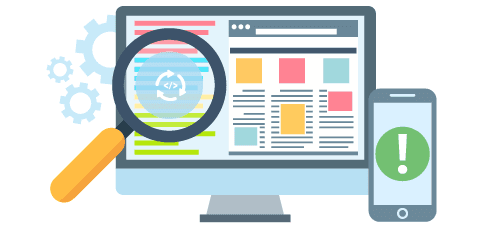API Testing Services
Enhancing Your Software Functionality with Automated API Testing.
Why is API Testing Important?
API testing targets the business logic layer within the software architecture. The main role of an application programming interface (API) is to facilitate integration with other applications.
At QA Genesis, we conduct API testing to verify that APIs can be utilized securely and effectively by other software.
Our approach to API testing includes examining a range of both positive and negative scenarios. We take all necessary measures to ensure that your API is free of defects and operates as intended.
We offer both automated and manual API testing services.
Benefits Of API Testing
Access application without the need for a user interface
Anti-malware and anti-hacking protection
Efficiency in terms of time
Independent technology lowers the cost of testing
Test execution is quick
API Testing Services Offered by QA Genesis
When you hire QA Genesis, we only assign QA engineers with immense experience in API testing technologies. As a result, it allows you to invest minimum time and resources on the testing cycle while also improving test performance.
API Automation Testing
Developing API tests and ensuring they are run regularly.API Functional Testing
Examining the API's health status.API Security Testing
Examining the security and data encryption methods used with the HTTPS protocol.API Regression Testing
Testing the API's functionality following bug fixes and feature development.API Load Testing
Testing the load capacity of your API.API Negative Testing
Examining how the API functioned when presented with invalid data.API Documentation Testing
Examining the completeness of the API call guidelines.Our API Testing Methodology Consists
Examining the API specification
Examining the prerequisites
Development of test documentation
Development of a test framework
Test execution and reporting for an integration test suite using a CI/CD server
Got API Testing Challenges? Tell Us About Them.

How API Testing Company Works?






Defects That Can Be Found During API Testing
Frameworks, Tools, and Solutions

JMeter

PostMan

SoapUI

Rest-Assured

Supertest
Popular Questions
1.
When should I start API testing?
It all depends on the type of API testing you need to perform. For example, several applications employ "internal" API to interact with components of the program. We believe that instead of focusing on UI testing, these API endpoints should be prioritized for testing. The rationale for this is that it is a critical component of the system and should perform as intended.
2.
Should I do manual testing or automation API testing?
Automation API testing, in our opinion, is necessary. Here are a few examples:
1. API automation tests are more stable than UI tests since they are not dependent on the user interface.
2. The development of API automation tests is substantially faster than the development of UI automation tests.
3. Runs of API automation tests are lightning quick.
4. API automation tests might be run after each commit to guarantee that the API is working correctly.
3.
Can I integrate API tests into CI/CD tools?
Yes, you certainly can. Even if you have postman examinations to complete, it will benefit you in the following ways:
1. More test results visibility
2. You can carry out tests without manual effort
3. Process of continuous delivery
4. Each commit is subjected to automated testing
5. A description of the issue
4.
I want to use QA Genesis API testing services. However, I don't like to share the codebase of our application. Is it feasible?
Yes, it is. We don't need access to your source to create API tests. Our API tests might be better off in their repository.
5.
On this project, were employing the BDD methodology. Can you write BDD-style API automation tests?
QA Genesis is capable of developing API automation tests in BDD style. To do so, we use Cucumber, Behat, Aloe, JBehave, and others.
6.
What tools does QA Genesis use for manual API Testing?
For the following reasons, we prefer to utilize Postman for manual API testing:
1. Simple to use
2. It's possible to integrate it with a CI/CD tool
3. The capability of testing data to be stored in many contexts
4. The ability to work with variables